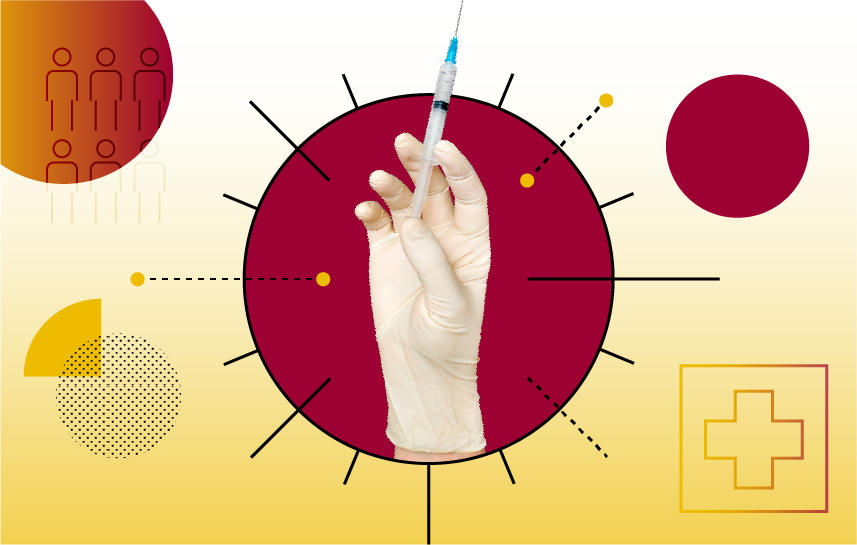A Wide-Moat Dividend Stock to Buy That’s 35% Undervalued
Why we’re bullish on this overlooked stock with a 4% dividend yield.

GSK GSK ranks as one of the largest pharmaceutical companies by total sales, and we don’t think the market fully appreciates the growth potential of its key innovative products. The undervalued wide-moat stock is among our 10 best companies to invest in now. GSK is also one of Morningstar chief U.S. market strategist Dave Sekera’s five wide-moat stocks to buy after earnings—in fact, he calls it “one of my favorite healthcare plays.”
As one of the largest pharmaceutical and vaccine companies, GSK has used its vast resources to create the next generation of healthcare treatments. Its innovative new product lineup and expansive list of patent-protected drugs create a wide economic moat, in our opinion. The magnitude of GSK’s reach is evidenced by a product portfolio that spans several therapeutic classes. The diverse platform insulates the company from problems with any single product. Additionally, the company has developed next-generation drugs in the respiratory and HIV areas that should help mitigate both branded and generic competition. We expect GSK to be a major competitor in respiratory and HIV treatments as well as vaccines over the next decade. On the pipeline front, GSK has shifted from its historical strategy of targeting slight enhancements toward true innovation.
Key Morningstar Metrics for GSK
- Fair Value Estimate: $54
- Star Rating: 5 Stars
- Economic Moat Rating: Wide
- Uncertainty Rating: Medium
Economic Moat Rating
Patents, economies of scale, and a powerful distribution network support GSK’s wide moat. GSK’s patent-protected drugs carry strong pricing power, enabling the company to generate returns on invested capital in excess of its cost of capital. The patents also give the company time to develop the next generation of drugs before generic competition arises. Its operating structure allows for cost-cutting following patent losses to reduce the margin pressure from lost high-margin drug sales. GSK’s established product line creates the enormous cash flows needed to fund the average $800 million in development costs per new drug. A powerful distribution network sets up the company as a strong partner for smaller drug companies that lack GSK’s resources. GSK’s entrenched vaccines platform creates an added layer of competitive advantage stemming from cost advantages in creating vaccines.
Read more about GSK’s moat rating.
Fair Value Estimate for GSK Stock
We forecast cash flows in pounds and convert the projections to dollars to obtain our $54 fair value estimate for the ADRs. Excluding the recently divested consumer group and COVID-19-related sales, we forecast average annual sales growth above 5% over the next five years (including joint ventures), with new products such as Shingrix offsetting minor generic competition due to patent losses. Also, steady growth from vaccines should reduce the volatility from patent losses in the prescription drug business. We expect minor margin expansion over the next five years (excluding royalty income) as high-margin specialty drugs represent an increasing part of total sales. Increased scale in vaccines should further help margins.
Read more about GSK’s fair value estimate.
Risk and Uncertainty
GSK faces risks of drug delays or nonapprovals from regulatory agencies, an increasingly aggressive generic industry, and competition in the pharmaceutical industry. We see access to basic services (tied to drug pricing) as the biggest environmental, social, and governance risk the company needs to manage. GSK generates close to half of total sales from U.S. vaccine and drug sales, so additional major pricing reforms could weigh on sales and margins. Additionally, we assume a more than 50% probability of GSK seeing future costs related to product governance ESG risks (such as off-label marketing or litigation related to side effects) and model base-case annual legal costs at 2% of non-GAAP net income.
Read more about GSK’s risk and uncertainty.
GSK Bulls Say
- GSK’s next-generation respiratory and HIV drugs look poised for strong growth over the next three years.
- The company faces relatively minor near-term patent losses, setting up steady growth over that same period.
- GSK’s well-positioned Shingrix vaccine should support strong long-term growth based on excellent efficacy and limited competition.
GSK Bears Say
- HIV patent pressure on GSK’s key drugs is likely to begin in 2027, setting up a major hurdle for growth later in the decade.
- GSK’s late-stage pipeline is not strong. The company will need to develop its early-stage pipeline to support growth over the next decade.
- The divestment of the consumer business increases the pressure on GSK’s research and development to create the next generation of innovative treatments.
MORN DODFX VINIX VWILX TSVA EGO WU Brightstart429plan MRO VZ MOAT T NKE CMCSA GOOG
The author or authors do not own shares in any securities mentioned in this article. Find out about Morningstar’s editorial policies.

/s3.amazonaws.com/arc-authors/morningstar/a90c659a-a3c5-4ebe-9278-1eabaddc376f.jpg)
/cloudfront-us-east-1.images.arcpublishing.com/morningstar/6ZMXY4RCRNEADPDWYQVTTWALWM.jpg)
/d10o6nnig0wrdw.cloudfront.net/05-20-2024/t_dc0763464c0a4191b876af1624b96f43_name_file_960x540_1600_v4_.jpg)
/cloudfront-us-east-1.images.arcpublishing.com/morningstar/IPKX4IWSDBD3VJC2Y34W6STFL4.jpg)
:quality(80)/s3.amazonaws.com/arc-authors/morningstar/a90c659a-a3c5-4ebe-9278-1eabaddc376f.jpg)